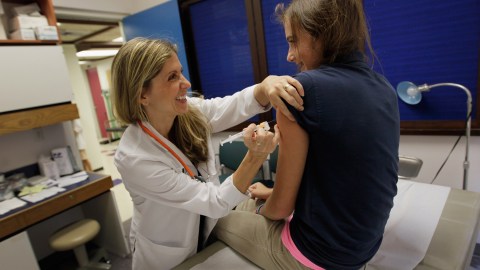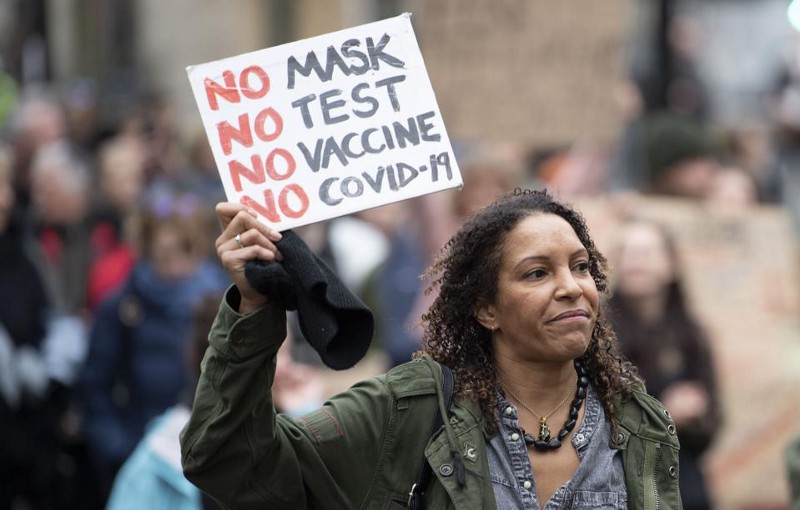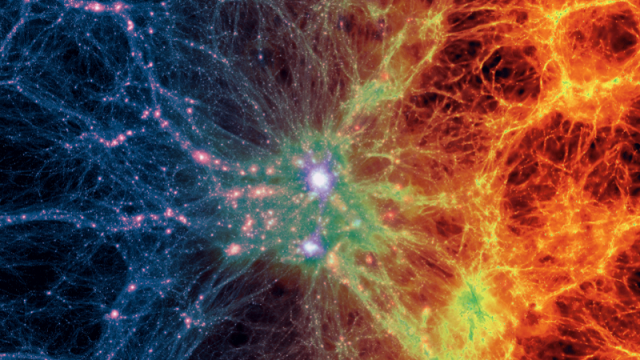How the Dunning-Kruger effect explains anti-vaccine attitudes

People who are against vaccination are a vocal if small group that doesn’t agree with the general scientific consensus that vaccines are safe and do not cause autism. It doesn’t matter to many in that camp more than a dozen studies failed to find a link between the two. How can this be? How can people flatly deny scientific consensus? Enter the Dunning-Kruger Effect, a cognitive bias that a new study uses to explain anti-vaccine policy attitudes.
What the Dunning-Kruger Effect (DKE) describes is a situation where people who, in fact, know significantly littleof a subject actually believe they know more than the experts. “The scope of people’s ignorance is often invisible to them,” explained one of DKE’s originators – social psychologist David Dunning.
A survey carried out by a team led by the postdoctoral researcher Dr. Matt Motta at the University of Pennsylvania’s Annenberg Public Policy Center, found that people “low in autism awareness,” who lacked knowledge about basic facts and were keen to believe misinformation, were more likely to believe they knew the topic better than the experts. This “overconfidence,” as the scientists called it, led to the people not supporting mandatory vaccinations policies and exhibiting skepticism about the role of medical professionals in political decision-making.
By conducting the survey of 1,310 adults, the team led by Matt Mota discovered that 36% thought they knew more than the doctors and 34% claimed to know more than the scientists about the possible causes of autism. The highest degree of overconfidence was shown by those with the lowest knowledge and high levels of endorsing misinformation. They were also more likely to support non-experts (like celebrities) being involved in policymaking.
If you think anti-vaccine attitudes are no big deal, science shows they have real-world consequences. There is a growing number of pockets of resistance to taking vaccines. Not coincidentally, those same population pockets are the most at risk for the diseases they refuse to prevent. For example, the growth of vaccine skeptics is linked to Minnesota’s biggest outbreak of measles in decades during the last year.
Dr. Peter Hotez, a pediatrician and dean of the National School of Tropical Medicine at the Baylor College of Medicine, and his colleagues who participated in a study on the subject, explained:
“A social movement of public health vaccine opposition has been growing in the United States in recent years; subsequently, measles outbreaks have also increased,” Hotez and colleagues wrote.
Of concerns are places like Idaho, which has 8 out of the top 10 counties with nonmedical vaccine exemptions, with the other two being in Wisconsin and Idaho. As these kinds of attitudes and exemptions grow, with the conversation hijacked by a small and vocal minority, vaccine resistance and outbreaks are sure to follow.
The Dunning-Kruger Effect was originally described by social psychologists Justin Kruger and David Dunning in 1999.
Check out this TED presentation on the DKE:
You can read the new study in Social Science and Medicine.





